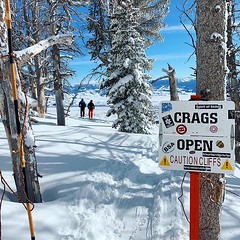SFUSD can’t explain why some sites are blocked
Today’s farcical public education situation: Attempting to shape employee behavior via censorship. As of today, SFUSD blocks an unknown number of web sites, including TeacherPayTeachers — not just for students, but for faculty as well. Here’s what I see:
Obviously, this is a pointlessly stupid thing to do. In the year 2012, people have multiple ways to access the internet. And as boring as it is to quote the contract, it seems clear that the district can’t legally limit teacher use of resources:
6.2 Academic Freedom – The District and the Union agree that academic freedom is essential to the fulfillment of the purposes of the San Francisco Unified School District, and they acknowledge that fundamental need to protect teachers from unreasonable censorship or restraint which might interfere with their obligation to pursue truth in the performance of their job with the District.
6.2.1 A teacher’s academic freedom is his/her right and responsibility to study, investigate, present, interpret, and discuss all the relevant facts and ideas in the field of his/her professional competence. This freedom implies no limitation other than those imposed by generally accepted standards of scholarship. As a professional, the teacher strives to maintain a spirit of free inquiry, open-mindedness, and impartiality in the classroom. As a member of an academic community, however, the teacher is free to present in the field of his or her professional competence his/her opinions or convictions and with them the premises from which they are derived.
6.2.2 Within the bounds of Board policies and administrative regulations, as well as adopted state and district curriculums, teachers shall have the opportunity to utilize best practices in employing their teaching methodologies that address students’ different learning styles. Teachers shall also have the discretion to use supplemental materials and develop supplementary lessons aligned with California content standards and district adopted core curriculum.
6.3 Listening, recording, television, or other monitoring devices shall not be used in any part of the building to violate teachers’ rights.
Emphasis mine. I’ll also mention here that I’ve never used TeachersPayTeachers myself. I saw it mentioned in an edtech newsletter, tried to look it up, and found it was blocked. So this isn’t about a pet resource. This is about how and why policy is made. If a teacher finds or purchases materials through this (or any other) web site, and deems them to be relevant in the discretion of their professional competence, then the teacher can use those materials in the classroom. So what possible reason is there for blocking teacher access to this site at SFUSD schools? This looks like a ham-fisted attempt to prevent teachers from sharing or selling curriculum materials. And why would the district want to do that?
SFUSD Board Policy 4540, which at least two of our current school board members claim they don’t know anything about on Facebook (screenshot here), states the following:
1. Patentable or copyrightable materials developed by staff members in the course of carrying out their professional responsibilities on District time shall be the property of the District.
2. Such materials developed partially on District time and partially on the employee’s personal time shall be the property of the District and the employee pursuant to an agreement between the employee and the District.
3. Such materials created by an employee during personal time when not fulfilling contractual duties to the District are the property of the employee.
It doesn’t make sense to me that materials developed by government employees would be anything other than public domain, but this also isn’t about the ill-informed Board Policy 4540. Blocking access to a lesson-sharing or -selling web site on the school network is an overly broad measure that doesn’t do anything to enforce the policy. All it does is limit the ability of teachers to use or even assess the value of a resource at school. All it does is make teachers work at home in order to avoid these kinds of arbitrary and petty censorship attempts. All it does is send the message that although we are trusted to work with your children, we’re not trusted to use the internet. These kinds of actions are indefensible from an institution that claims to value access, equity, student achievement, and accountability.
This is why I’ve been asking for the past week for a reason that TeachersPayTeachers is blocked. Today, SFUSD’s CTO Matthew Kinzie replied to my email, writing:
“I am not aware of any political motivation to block this site. Unfortunately, we lack the documentation behind the original decision to black [sic] the site. John approved ITD unblocking this site a couple of days ago.”
How many other web sites are blocked without any documentation of the original decision? That list of sites, however long it may be, represents SFUSD going above and beyond what their contracted internet filtering vendor, M86, blocks for CIPA compliance. And now we learn that this extra layer of censorship is not connected to anyone who can explain why or how it exists. Why are we running our school district as if it were a repressive political regime?
The person that CTO Kinzie refers to approving the unblocking is Dr. John Rubio, Educational Technology Supervisor. How he ended up with the unenviable responsibility for making the school district’s censorship decisions is a question that only his boss, Executive Director of Academics & Professional Development Bill Sanderson, can answer. Ultimately, Superintendent Carlos Garcia has the power to direct how these censorship policies (or informal policy decisions, since none of them are ever made public) are set and implemented. Meanwhile, SFUSD continues to devote resources to limiting student and faculty access to the internet, while failing to provide even basic email accounts for students. It looks like it’s going to be a long 21st century for those of us working here.











Leave a comment